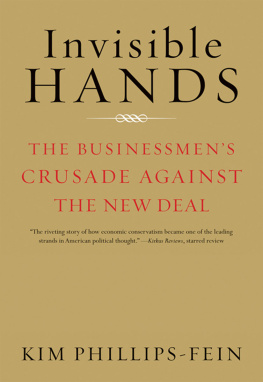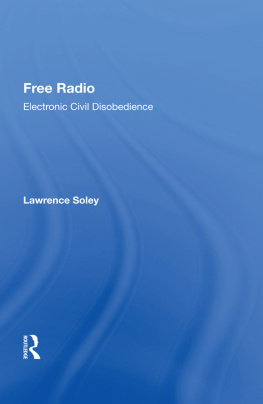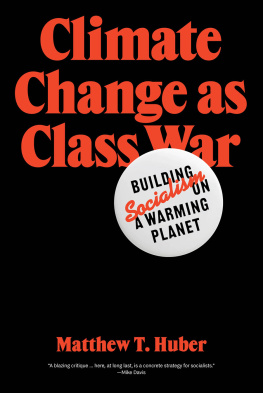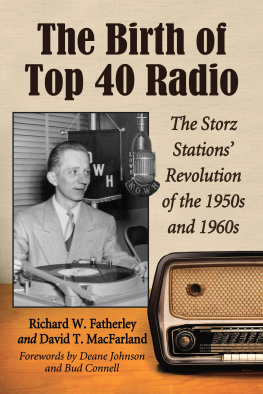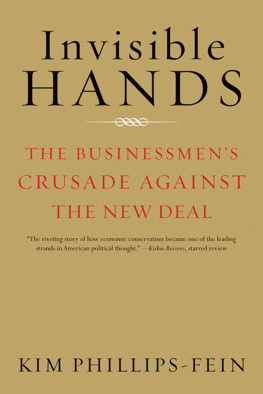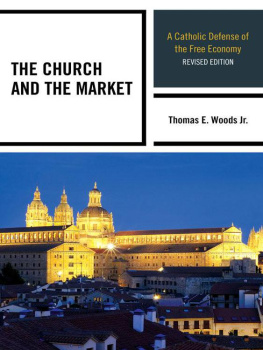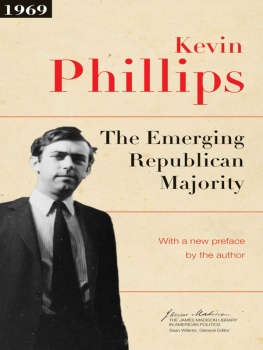More praise for
INVISIBLE HANDS
The riveting story of how economic conservatism became one of the leading strands in American political thought. Engaging history from a talented new scholarly voice.
Kirkus Reviews , starred review
Kim Phillips-Feins Invisible Hands persuasively shows how antiNew Deal business interests helped create a new political conservatism after 1945. It is essential reading on the history of contemporary American politics, and especially on the origins of Ronald Reagans ascendancy.
Sean Wilentz, Princeton University, author of The Age of Reagan: A History, 19742008
A compelling and readable story of resistance to the new economic order.
Boston Globe
A fascinating account of how important wealthy donors were to the rise and success of conservatism. While many historians have focused on the role of ideas, activists, and politicians, this work takes us to the people who put their money where their mouths were.
Huffington Post
With ferocious archival spadework and a sharply honed critical intelligence, this study shifts the agenda of history-writing about American conservatism and marks a new stage in its maturity. A very important book.
Rick Perlstein, Nixonland
Highly readable for its absorbing historical background. A valuable addition to the history of conservatism.
Gilbert Taylor, Booklist
Readable and engaging. As certain topics remain at the forefront of the political conversationthe economy, increasing government programs, the future of the conservatism and the influence of business in politics, to name a few Invisible Hands lays the groundwork for anyone trying to grasp where some of these issues began and what they mean.
Roll Call
Invisible Hands is a brilliant, lucid, meticulously researched account of the politics of business conservatism. Kim Phillips-Feins work is pathbreaking. For anyone who wants to understand the triumph of the conservative order during the past quarter century, Invisible Hands is a must read.
Steve Fraser, author of Wall Street: Americas Dream Palace
A cogently argued, densely researched book. Phillips-Fein arranges her material into a new synthesis, using archival research to date and describe the exact set of connections that formed at mid-century and that went on to precipitate the Reagan Revolution. She does this with an eye for the vividand at times for the entertainingdetail. She moves among the history of ideas, movements, institutions, and political change in prose that is clear and engaging.
Dissent
INVISIBLE HANDS
INVISIBLE HANDS
The Businessmens Crusade Against the New Deal
KIM PHILLIPS-FEIN

W. W. NORTON New York London
Copyright 2009 by Kim Phillips-Fein
All rights reserved
First published as a Norton 2010
For information about permission to reproduce selections from this book, write to Permissions, W. W. Norton & Company, Inc., 500 Fifth Avenue, New York, NY 10110
The Library of Congress has cataloged the hardcover edition as follows:
Phillips-Fein, Kim.
Invisible hands: the making of the conservative movement from the
New Deal to Reagan / Kim Phillips-Fein.1st ed.
p. cm.
Includes bibliographical references.
ISBN: 978-0-393-07763-6
1. ConservatismUnited StatesHistory20th century. 2. United States
Politics and government19331945. 3. United StatesPolitics and
government19451989. I. Title.
JC573.2.U6P49 2009
320.5209730904dc22
2008043050
W. W. Norton & Company, Inc.
500 Fifth Avenue, New York, N.Y. 10110
www.wwnorton.com
W. W. Norton & Company Ltd.
Castle House, 75/76 Wells Street, London W1T 3QT
For Greg
Contents
Introduction
L ATE IN THE SPRING of 1981, only a few months after being sworn in as president, Ronald Reagan mailed his old friend Lemuel Ricketts Boulware a set of autographed golf balls for his eighty-sixth birthday, accompanied by a personal note: Dear Lemin case I do something wronghit one of these with a 9 iron or a wedge and Ill feel it.
The two men had known each other for almost thirty years, ever since they met at General Electric in the 1950s. Reagan had gone to work as a spokesman for the industrial giant after his Hollywood film career began to wane, hosting the companys hour-long television drama program and touring plants to give pep talks to workers, while Boulware was in charge of labor relations and community affairs for the company. But even in the 1950s, Reagan and Boulware were not only colleagues and acquaintances; as Reagans note suggests, they were also political allies. During the years when Reagan worked at the company, Boulware believed that GE was in grave danger, threatenedas was all American capitalismby the power of the labor unions and the expanded federal government that had been created by the New Deal. From his position, he tried to work toward a goal that seemed impossible at the time: to turn back the central institutions and the reigning ideas of New Deal liberalism, and revive an age of laissez-faire.
In 1981, with Reagan in office, it seemed to Boulware as though the agenda he had sought to establish for decades might finally be on the verge of success. He wrote back to the president thanking him for the gift: Heres to your creative and courageous program of correction continuing to live up to its great promisefor you and all the rest of us.
T HIS IS a book about conservative politics. But it isnt a book about the political leaders of the movement, the men like Reagan whose names and faces everyone knows. It is a book about businessmen like Lemuel Boulware, who supported and helped to build the conservative movement that brought Reagan to power in 1980.
The rise of conservative politics in postwar America is one of the great puzzles of American political history. For much of the period that followed the end of World War II, conservative ideas about the primacy of the free market and the dangers of too-powerful labor unions, government regulation, and an activist, interventionist state seemed to have been thoroughly rejected by most intellectual and political elites. Scholars and politicians alike dismissed those who adhered to such faiths as a radical right, for whom (to quote the Columbia University historian Richard Hofstadter) politics becomes an arena into which the wildest fancies are projected, the most paranoid suspicions, the most absurd superstitions, the most bizarre apocalyptic fantasies. How, then, did such ideas move from their marginal position in the middle years of the twentieth century to become the reigning politics of the country by the centurys end?
Historians and social critics often explain the successes of conservative politics by pointing to the backlash against the victories of the social movements of the 1960s, the cultural reaction against the radicals who fought for civil rights, feminism, and gay and lesbian rights and who protested against the Vietnam War. The 1970s defection of white working-class people alienated and frightened by the liberal program shifted the politics of the country far to the right. The argument is that in the days before the onset of the culture wars, a liberal consensus dominated American politics, especially around economics. During the thirty-odd years between the rise of the New Deal and the election of Richard Nixon in 1968, when the Democratic Party held the White House for all but eight years, many political leaders and social critics believed that there existed a general consensus that the federal governmentand other collective institutions, like labor unionshad an important role to play in shaping economic life and helping to redress the ordinary inequalities of a capitalist economy. The fierce and open conflict between rich and poor that had dominated American politics in the early years of the twentieth century had largely disappeared. Businessmen responded to this era of liberal dominance in a variety of ways. Many supported the New Deal order inaugurated by Franklin D. Roosevelt (whom some of them saw as one of their own)and not without reason, as it fostered a period of relative prosperity and peace. They accepted the general framework of Keynesian economics, acknowledging that government spending could help counterbalance destructive recessions; they saw the welfare state as a necessary social safety net. And indeed, despite the persistence of divisions of class and race, those years saw dramatic improvements in the standard of living for most Americans, as the economy grew without accelerating the inequality between rich and poor.

